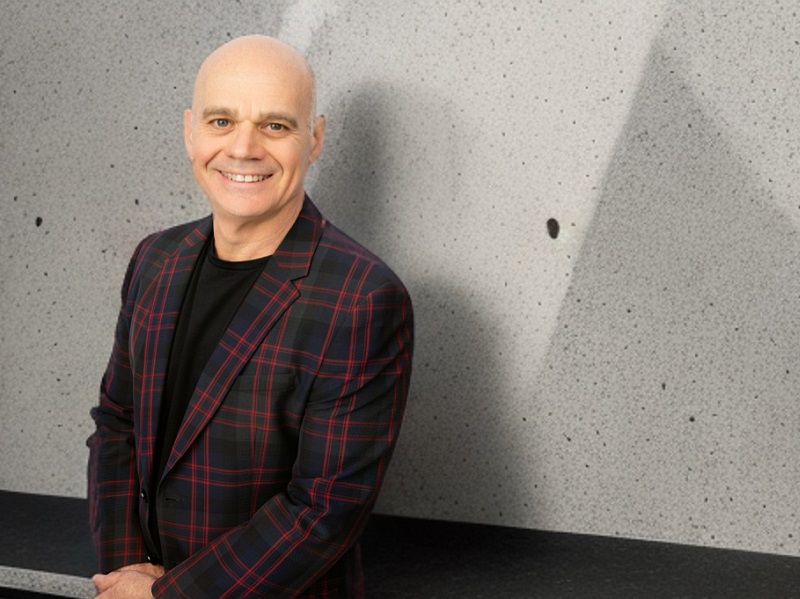Victoria’s (and Australia’s) future prosperity is dependent on knowledge-intensive companies that collaborate, innovate, and commercialise successful products globally.
But to survive and reach commercial success, these companies must be able to access funding at key stages of their development. Without this, they will fail, and we will struggle to create a self-sustaining human healthcare innovation industry.
It takes on average, 15 years and more $50 million for a medical technology – or MedTech – company to go from the research bench to market. As a growing MedTech company moves from product development to market launch, its need for capital investment increases. However once companies reach self-sustaining revenue and positive cashflows, the benefits to our economy become clear.
I think we can all agree that building more knowledge-intensive companies like Cochlear would be a huge win for our country. It’s a terrific example of economic potential from our Australian innovation.

Cochlear is valued at $22 billion. Through FY23, it generated $1.95 billion in revenue, employed 4,800 people and paid $90 million in tax. And it spent $244m on R&D, creating substantial spill-over benefits into science.
If the government of the day had not provided millions of dollars in funding to Cochlear in the mid-80’s, that company and its Melbourne developed technology may have faltered or ended up offshore.
There has been a lot of recent press regarding the Victorian government’s Breakthrough Victoria fund. As both a long-time investor in, and champion of, startups, I am strongly supportive of the initiative.
In my view, it fills a void for patient growth funding for MedTech companies that to date, has not been systematically or adequately addressed by the private sector in Australia.
One example of this is a company that I chair, Cyban. It is a later stage startup with the potential to offer Australian job growth and a substantial contribution to our domestic economy.
Without the support of patient, long term investors like Breakthrough Victoria, who make larger individual investments and follow their money over multiple investment rounds, Cyban would not have had sufficient funding to commercialise its world-first medical device, a Brain Pulse Monitor, for the early detection and treatment of brain injury.
This innovation has the potential to save millions of lives. Clinicians treating brain injury are crying out for it, and we are at a crucial stage in commercialisation, between achieving regulatory approval and international market launch, when cash requirements ramp up significantly.
The Victorian MedTech, biotech and pharmaceutical (MTP) research sector is a unique strategic asset — it attracts more than 40 per cent of national competitive funding annually, far more than any other Australian state. Melbourne is one of the world’s leading biomedical precincts.
Victoria’s MTP research sector consists of universities, research institutes, hospitals, and the CSIRO and is highly productive, internationally connected and recognised globally for high quality research. The state has a world class healthcare system, employing 340,000 people across more than 30 hospitals, ensuring access to the latest, and arguably, best healthcare in the country.
Victoria is ideally placed to undertake large scale research, development, manufacturing, and export of MTP products and services, and this is recognised by the Victorian government which has nominated the sector as one of six priorities with extraordinary potential to create and secure high-skilled jobs and drive economic growth.
Since 2000, Victorian and federal policy has focused on fostering startups – that is, taking innovation from research to an early commercialisation phase. Anecdotally, we have been successful in this endeavour with an ever-growing and vibrant crop of startups across a broad spectrum of science.
The area in which Victoria has not achieved adequate success, and indeed lags similar world-leading research clusters, is translating that research into commercial success.
Too often our excellence in R&D output goes offshore — meaning intellectual property paid for and developed with taxpayer funding is lost and we forgo multiple benefits, including jobs, export income, a vibrant commercialisation ecosystem and a self-sustaining human healthcare innovation industry that makes a meaningful impact on healthcare outcomes — here and around the world.
Our attention must now shift to removing the roadblocks that stop our local MedTech startups from becoming high growth, self-sustaining, and profitable companies.
Governments have traditionally focused their policy efforts on grants and in recent years we have seen progress in the number of pre-seed and seed funds making investments in the MedTech sector.
Whilst these initiatives are to be applauded, they are not yet sufficient, as they only provide relatively small amounts of funding at the early stage of a MedTech company’s growth.
Our aim in Victoria (and Australia) should be to utilise our unique strategic advantage in research to grow many, many more companies like Cochlear and CSL from within our own health technology innovation eco-system.
Without policy initiatives like Breakthrough Victoria, that fill a funding void, our country will languish.
Our mission must be to nurture the development of a technologically advanced, innovation-driven, and financially self-sustaining health care industry. If not, we will squander a rare opportunity to reach our potential as the clever country.
Andrew Maxwell is the managing director of Melbourne-based boutique business advisory firm Chatsworth Associates and chair of Cyban
Do you know more? Contact James Riley via Email.
